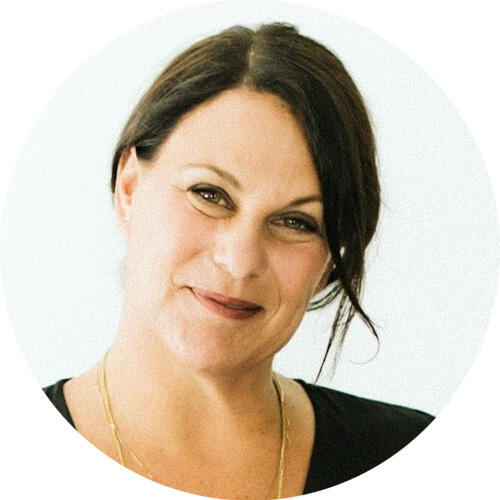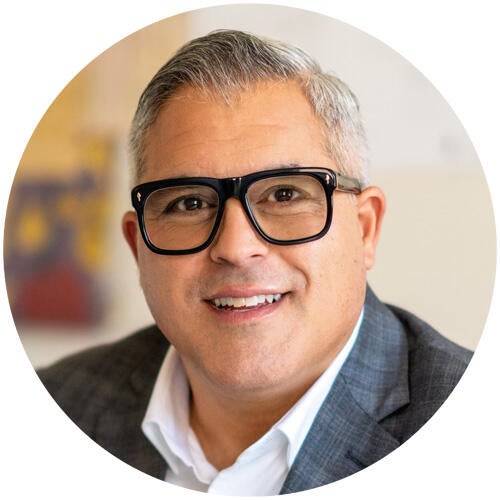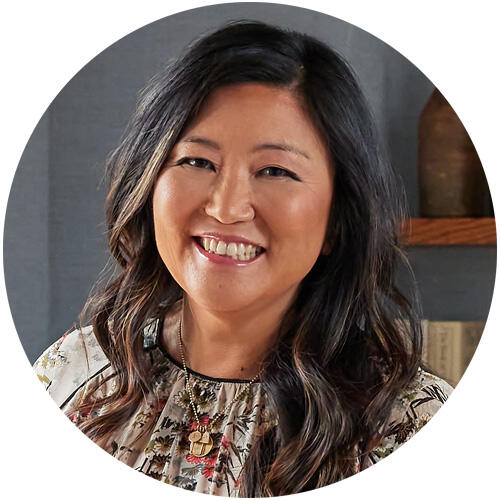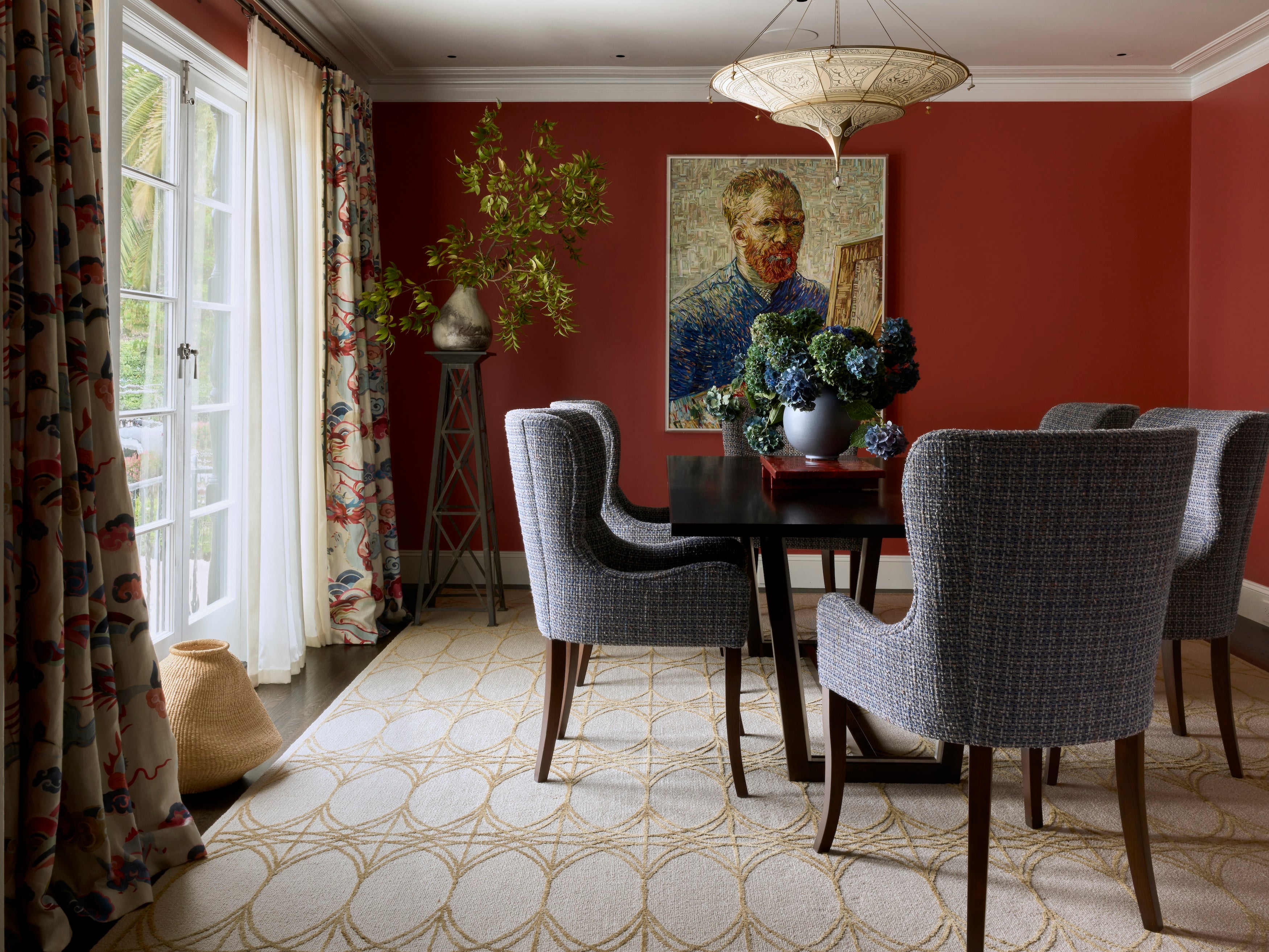Every other day there seems to be more news about tariffs and how President Donald Trump’s policies are changing the economic landscape in the country. In these uncertain times, we can take a page out of the books of five designers—George Brazil, Michael Cox, Swati Goorha, Kerri Pilchik and Rebekah Zaveloff—who shared in the 2024 Interior Design Business Survey how they have designed their business to withstand the ever-changing economy.

GOING LEAN
“In our culture of endless acquisition and consumption, the concept of intentionally focusing on less rather than more can seem counterintuitive, and even radical. Yet in September, that is exactly what we did at Foley&Cox. In the last four years, firm vice president Zuni Madera and I have witnessed an unprecedented barrage of business challenges: The office was shut down by a global pandemic, then we struggled to maintain services via remote access, then tried to adapt to a hybrid schedule developed by some Swedish scientists, and most recently attempted to accommodate shifting employee expectations in a post-pandemic labor pool. The workplace conditions and circumstances we kept hoping would return to ‘normal’ were anything but. The world had changed and wasn’t going back.
“To develop a plan for next steps would require a bold new perspective. The biggest hurdle to overcome? Me. I had to give up old thinking, forget outdated practices, and throw away all the habits that entrenched me in the past. Zuni and I needed to tap into our 17 years of shared experience, then identify what to keep and what to let go. The clearest way forward was to reduce the layers we’d added over the years, return to our design roots, and weed out as much overhead burden as possible: Give up the office. Eliminate full-time employment and pivot to part-time and freelance. Strip away all the layers of fixed costs associated with that traditional model that keeps small businesses from being as nimble and adaptable as the new environment was dictating, while at the same time leaning into all the new technology and digital learnings we had accumulated.
“Twenty-two years to the day after its incorporation, Foley&Cox took the leap. We closed the office, moved the server to the cloud, and began a new chapter for the firm. As we embark on this next adventure, we hope to forge a new path and create a new model for other creative small businesses.” —Michael Cox, Foley&Cox, New York

PERFORMANCE REVIEW
“In response to this year’s economic challenges, our interior design firm has adopted a multifaceted approach to ensure stability and growth while navigating these challenging times. In our marketing and client communications, we’ve shifted focus to emphasize the value and functionality of our designs. We highlight how well-planned spaces can improve daily living and productivity, especially in home offices; we instill confidence in our clients about our financial management by showcasing projects that demonstrate cost-effective solutions with a high visual impact. We are also highlighting projects that resonate with current economic sentiments: By showcasing sustainable and eco-friendly designs, which are increasingly important to clients, we tap into a growing market trend and present ourselves as a firm that values both style and sustainability.
“Building strong relationships with our clients has become paramount as well. We’ve implemented a more personalized approach, including regular check-ins and follow-ups, to ensure client satisfaction and foster loyalty. This commitment to our clients makes them feel valued and important, creating a sense of partnership that encourages repeat business and referrals. Technology has [also] played a crucial role in our strategy. We’ve enhanced our digital presence through virtual consultations, allowing us to reach clients who may prefer remote interactions. Additionally, we’ve adopted design software that enables clients to visualize their spaces in real time, making the decision-making process smoother and more engaging.
“To safeguard our profitability, we have meticulously reviewed our management and operational costs. We can maintain high-quality service while minimizing expenses by negotiating better terms with suppliers and streamlining internal processes. This strategic cost management ensures that we can weather fluctuations in demand without sacrificing the quality our clients expect. Lastly, we prioritize continuous education for our team. Attending workshops and training sessions keeps us abreast of the latest design trends and techniques, enhancing our creativity and competitiveness. By embracing these strategies, our firm has not only protected itself against the current economic challenges but also positioned itself for future growth and innovation.” —Swati Goorha, Swati Goorha Designs, New Jersey

REBOUND-READY
“After 20 years in the design business—beginning in kitchens at KitchenLab, and then evolving into all aspects of the interiors business by saying yes to clients (and later rebranding our business as KitchenLab Interiors)—we knew that we had to make a change. Even after changing our firm’s name, it was a constant question from potential clients: Do you do more than kitchens? So we decided to celebrate two decades of KitchenLab by launching a new company, which we named Imparfait Design Studio.
“While we started with the idea to rebrand KitchenLab, we decided after a very thorough and informative process with fantastic professionals that losing the equity we had built in KitchenLab was madness. That process was expensive, both in time and money.
“What we couldn’t have known at the time was that the constant media drumbeat of an imminent recession ultimately led to an actual recession for us: Leads dried up and we didn’t sign a new client for months, all while thinking that it was just a blip that would turn around. This is frankly something we hadn’t experienced since the 2008 Great Recession, and our concern was growing. Our team was by far the best it had ever been, and we had a brand-new company, complete with the new studio we had built out—and no new business. While 20 years of business inures you somewhat to daily stress, the uncertainty did not help. (One of my favorite tenets, ‘Hope is not a good business strategy,’ was often front of mind.) We held on through the holiday season of 2023, fully extending our credit facilities in order to continue to pay our team and function. We were confident that we wouldn’t have to resort to layoffs; that the ‘interior recession’ was just post-Covid reset; and that we would be able to pay off the debt we had taken on when business returned to normal. Happily, business began to snap back, both for KitchenLab and Imparfait Design Studio. Projects began to be discussed and activated, and we could breathe again, and begin to dig our way out. Imparfait indeed.” —Rebekah Zaveloff, KitchenLab Interiors and Imparfait Design Studio, Chicago

TRIMMING DOWN
“Scaling back our business has allowed us to keep our business profitable. As business owners, we have to look at several indicators and act accordingly. At the end of the day, we are the financial stewards of our businesses, and our actions are what give us our successes or failures. We recently had to take a look at our current workload, future projects and current employee roster and make a shift in order to continue providing the best service we can to our clients while keeping our business profitable. Personally, this resulted in us having to make some tough decisions. Looking through this lens as a business owner allowed us to make the right decisions.
“Although we have goals around the size of our business and the number of projects we want to work on annually, we are continually adjusting to the realities we are presented with. This doesn’t mean we give up and give in when things don’t go our way—it means we pivot as needed so we can work harder on achieving our goals. I don’t look at having to scale our business back as failing. I actually look at it as a responsible and sound business practice in order to keep the business alive and thriving.” —George Brazil, SagreraBrazil Design, San Francisco

RESOURCE MANAGEMENT
“While I have not changed my behavior too much this year, some things have become more important than ever to protect my business: being mindful of how I spend the firm’s funds and cultivating referrals. Make sure that you always have enough money in savings to cover at least one year of operations. At the beginning of 2024, I decided that I would take on only one charitable event this year. It’s difficult to say no—they are so worthwhile and I love to give back—but they also require significant time and expense. I have to make a new hire this year, and I will likely do so on an hourly basis rather than putting them on payroll, just to stay flexible.
“It is so important to continually cultivate your relationships with current and prior clients, since repeat clients are the greatest source of business. Sending a holiday card or gift, or even a note if something makes you think of them, are good ways to stay in touch. I also try to keep up-to-date on what is happening in my local real estate market. I will invite a Realtor to coffee or a drink, or network with local builders and architects—you never know where your next great project will come from, so you always want to stay top of mind.” —Kerri Pilchik, Kerri Pilchik Design, New Jersey
These excerpts were originally published in the 2024 Interior Design Business Survey report, produced by Pearl Collective and Interior Talent in collaboration with Business of Home. Download the full report for more insights on the state of the industry.





























